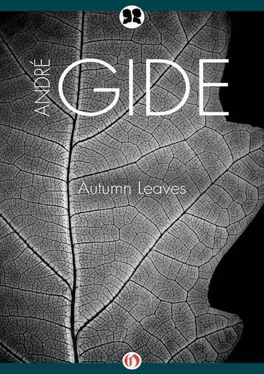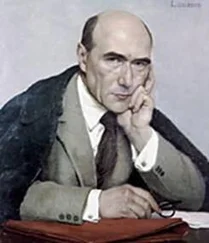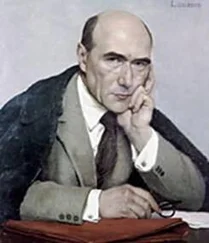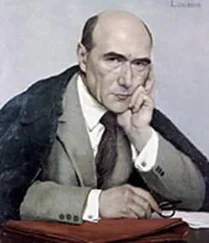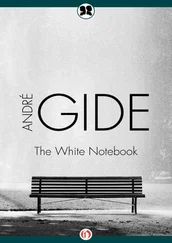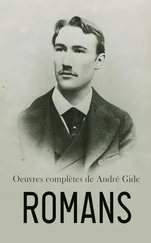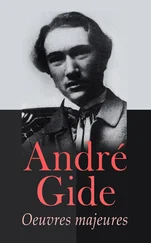They do not admit serenity acquired outside of what they teach. I speak here of the Catholics; every doctrine that departs from their church must end in despair.
As for that serenity on which you plume yourself, you expose it by speaking of it; by exposing it, you compromise it. It is on your countenance and in your acts that one should read it; not in the sentences that you write not knowing why nor for whom.…
Get along without God.… I mean: get along without the idea of God, the belief in an attentive Providence, tutelary and rewarding … all who wish it, do not succeed.
Yet the bat with sunken eyes is able to avoid the wires strung up in the room where he is flying about without colliding with them. And he doubtless feels afar off, in the nocturnal air, the passing of some insect which will furnish his nourishment. He does not fly haphazardly, and his bearing which appears capricious to us, is motivated. Space is full of vibrations, rays, that our senses can not perceive, but which are intercepted by the antennae of insects. What connection between our sensations and their cause? Without a sensitive receiver, nature remains mute, colorless and odorless. It is within us that number becomes harmony.
The wonder is that man has been able to fabricate instruments capable of supplying the insufficiency of his senses, of picking up imperceptible waves and unheard vibrations. We were already satisfied with our senses; the rest is superfluous. But whether we wish it or not, the rest is there. Man has daringly widened his reception and unlimited his power. Too bad he does not show himself more equal to it! He bears himself ill. Lack of habit, perhaps (let us hope so); all of that is so new! He is trespassing and he is overwhelmed.
When I learned that little knots of ribbon were called rosettes (how old could I have been? Five or six …) I got a quantity of both of them from my mother’s workbox, then, having locked myself in my room, away from looks that would have disturbed the miracle, I arranged a flower-bed, a whole garden, on the floor. Were they not flowers? The word meant that. It was only necessary to believe. And I tried for a good quarter of an hour. Nothing happened.
On a childish plane, that was the defeat of nominalism. And perhaps, after all, I lacked imagination. But I especially remember saying to myself: “What an idiot I am. What does all this foolishness mean? There is nothing there but pieces of ribbon, nothing at all …” and I went and put them back in my mother’s basket.
These are such hard times, that we can not imagine (or rather: are not willing to admit) that there could have been just as tragic ones at any other moment in history. Better informed, we should arrive, perhaps, at convincing ourselves that the exceptional was, very much to the contrary, the long period of tolerance in which we were living before the breaking out of horrors (which feel themselves decidedly at home —on earth) — so natural did that freedom of mind, so deplorably compromised today, appear to us. Here comes back a time when those will be considered traitors who do not think “properly.”
Some, it is true, still resist; and it is they alone who count. It is of little importance that they are few in number: it is in them that the idea of God takes refuge.
But the temptation which, for the young, is the most difficult to resist, is that of “enlisting,” as is said. Everything tempts one to it, the most skillful sophisms, motives the most noble in appearance and the most urgent. Much would have been accomplished if youth were persuaded that, at heart, it is through laisser-aller and laziness that they enlist;
… if youth were persuaded that it is a question — not of being this or that but — of being.
One flatters oneself, or at least one has the tendency to flatter oneself. Complacency toward oneself is a trap into which I have such great fear of falling that I have often been able to doubt the sincerity (the genuineness) of movements, that were, nevertheless, natural to me, as soon as they took the direction that I would have liked them to take. (My sentence is frightfully complicated; impossible to express that simply.) Those movements, those “states of mind,” I still had to recognize and admit as natural, when I found them exactly the same, in my daughter while still a child; in particular, a certain fundamental optimism, that, in myself, I could be afraid was obtained.
As someone asked Catherine, a little stupidly, it seems to me: “Where would you rather be? At Saint-Clair (where she was then) or in Paris?”—at first she seemed very much astonished; she could scarcely comprehend that such a question deserved asking; then ended by answering ingenuously — “why, at Saint-Clair, since I am there .” (She must have been hardly more than five years old at that time.) And I suddenly recognized in her the very depths of my own nature and the secret of my happiness: an “Amen” indicated by the great difficulty, if not the impossibility (in that child as in myself) of producing and nourishing regrets.
To take things as they are.
Play with the cards one has.
Require one to be what one is.
Which does not keep me from fighting against all lies, falsifications etc. brought about by man and imposed on natural things against which it is vain to revolt. There is the inevitable and the modifiable. The acceptance of the modifiable is by no means included in the Amor Fati.
Which does not prevent one either from requiring the best from oneself, after one has recognized it as such. For one does not make a better likeness of oneself by giving way to the less good.
P.S. When I brought out these pages to-day, it seemed to me that I was wrong to tear up the first ones in this notebook. As bad as they were (I had just gotten up after an illness) they answered in advance remarks made to me by a friend, in whose wisdom I have great confidence; he never speaks for the purpose of saying nothing and says only sensible things. He protests that these pages, which I have just given him to read, are much less subversive than I seemed at first to think; even that a great number of eminent representatives of the Church would willingly subscribe to them to-day; and he quotes some names that I take care not to repeat. X. and Y. were already speaking to me in the same manner, affirming that I was not very cognizant of the present state of the Church, the intelligent pliancy of its Credo. I admitted I was not at all “up to date” and that, for greater convenience doubtless, I kept to what Bossuet taught me; that as soon as it was a question of Variations, it could only be the Protestant Churches (according to the title itself of his admirable work) to which the Catholic Church was opposed, by “its character of immutability in the faith.”
“Without doubt,” he responded, “but nevertheless it evolves ceaselessly. You would like to harden it, to make of it a finished product; it is living and answers the new requirements. Remember Chesterton’s beautiful pages, translated by Claudel, that you made me read in the N. R. F. some time ago? ‘The Church,’ he said, ‘is never static’.” And he compared it to a cart running at full speed over a narrow ridge avoiding new perils to right and left ceaselessly. “There is not a doubt,” continues my friend, “that enlightened Catholics would not be troubled at all by the affirmations you have just stated. It is your right to call Virtue what they call God; a mere question of words; it is the same thing. The idea of God, the need for God torments you; they ask nothing more of you in order to recognize you as one of theirs. And as I nevertheless protest that there is a misunderstanding; that I am searching for what makes them reject me just the same, I return to those opening pages, written in this notebook, those badly done pages, torn up; they treated of eternal life; a sort of premonitory instinct tempted me to put them at the beginning; to speak of that first, and now I understand that it was, indeed, necessary to begin with that.
Читать дальше
